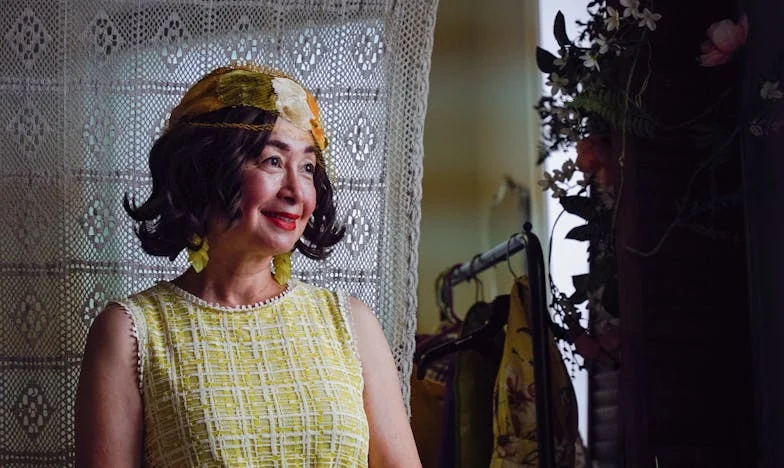The Price of Perfection: Emily’s Story
“You can’t keep living like this, Emily!” My sister’s voice cracked through the phone, sharp and unexpected as a winter gust. I stood in my spotless kitchen, hands shaking, the scent of lemon cleaner still lingering in the air. I could see my own reflection in the microwave, lips pressed tight, eyes rimmed with tiredness.
“Like what, exactly?” I tried to keep my voice steady, casual, but the pitch betrayed me. “I’m working. I’m fine.”
“You haven’t been to a single family dinner in months. Mom keeps asking about you. You missed Dad’s birthday. Are you even listening to me?”
I clenched the sink, knuckles white. “I just have a lot going on at work, Sarah. It’s quarter-end. The audit—”
“It’s always work!” she snapped. “When are you going to realize you’re not just your job?”
The call ended with an awkward silence. I stared at the phone, feeling a familiar ache in my chest. The silence in my apartment felt deeper than usual, echoing off the immaculate countertops and folded throw blankets. I had earned every inch of this peace, or so I told myself. But what was it costing me?
I grew up in Cedarville, a small town in Indiana where everyone knew each other’s business. My parents still lived in the same blue-trimmed house; my brother coaches the high school basketball team. I was the one who “got out,” the one who graduated college and moved to Indianapolis. I found a job as a senior accountant at a furniture manufacturing company—a good job, a stable job. My coworkers always joked about my color-coded spreadsheets, my post-it notes, my relentless drive to keep everything in its proper place.
“You’d make a great mom,” my boss, Mr. Anderson, once said with a half-smile as I organized the supply closet for the third time that month. “If you ever wanted to settle down, that is.”
I laughed it off. I was thirty-four, single, and had never even lived with anyone else, unless you count my college roommate, who moved out mid-semester because I complained about her laundry habits. Relationships always seemed too messy, too unpredictable. No one could guarantee me the kind of order I had built around myself like a fortress.
Still, every holiday, Sarah would ask, “Are you seeing anyone?” And I would answer, “Not right now,” with a smile that felt safe and practiced. My mother would sigh and press another slice of pie into my hand, as if sugar could fill the spaces left empty by the life I didn’t choose.
I told myself I didn’t want kids, that marriage was just another kind of chaos. But sometimes, late at night, I would hear the laughter of the family in the apartment next door, and I’d wonder what it would feel like to let someone into my world. To let them mess up my perfectly arranged throw pillows, to leave their coffee cup in the sink overnight.
Last week, I got a call from the hospital. My father had a mild heart attack. Nothing serious, they said, but he was asking for me. I went home for the first time in a year, the drive feeling longer and lonelier than ever.
Sarah met me at the door. She looked tired, her hair thrown back in a messy bun, her youngest clinging to her leg. “You’re here,” she said, hugging me tight. I stiffened, unused to touch. “He’ll be glad.”
Dad was thinner than I remembered, gray spreading through his beard. “Emily,” he said, his voice rough. “You work too much.”
“I know,” I whispered. “But you always taught me to work hard.”
He smiled, but it was sad. “Work hard, sure. But love harder.”
I didn’t know how to answer him. We sat in silence, the beeping of the monitors filling the room. I felt like an outsider in my own family, a guest in a life that might have been mine if I had chosen differently.
That night, Sarah and I sat on the porch, the Indiana stars bright above us. “You could have had this, you know,” she said softly, gesturing at the house, the kids’ bikes, the soft light in the windows. “You still could.”
“I don’t know if I know how,” I admitted. My voice broke—just a little. “I’m so used to being alone.”
Sarah squeezed my hand. “Maybe that’s the problem, Em. Maybe you don’t have to be.”
I drove back to my apartment the next day, the city lights welcoming me like an old friend. Everything was exactly as I had left it—perfect, untouched, silent. I stood in the middle of my living room, listening to the emptiness.
I thought about calling someone—an old friend, a coworker, maybe even the neighbor I always avoided in the hallway. But instead, I just sat down, right there on the floor, and let myself cry for the first time in years.
I don’t know what comes next. Maybe I’ll try to reach out more, say yes when someone asks me to dinner, let myself be a little less perfect and a little more human. Maybe I’ll even leave the dishes in the sink, just once, and see what happens.
Is it ever too late to change the life you’ve built so carefully? Or is it braver to let it get a little messy and see who stays?
